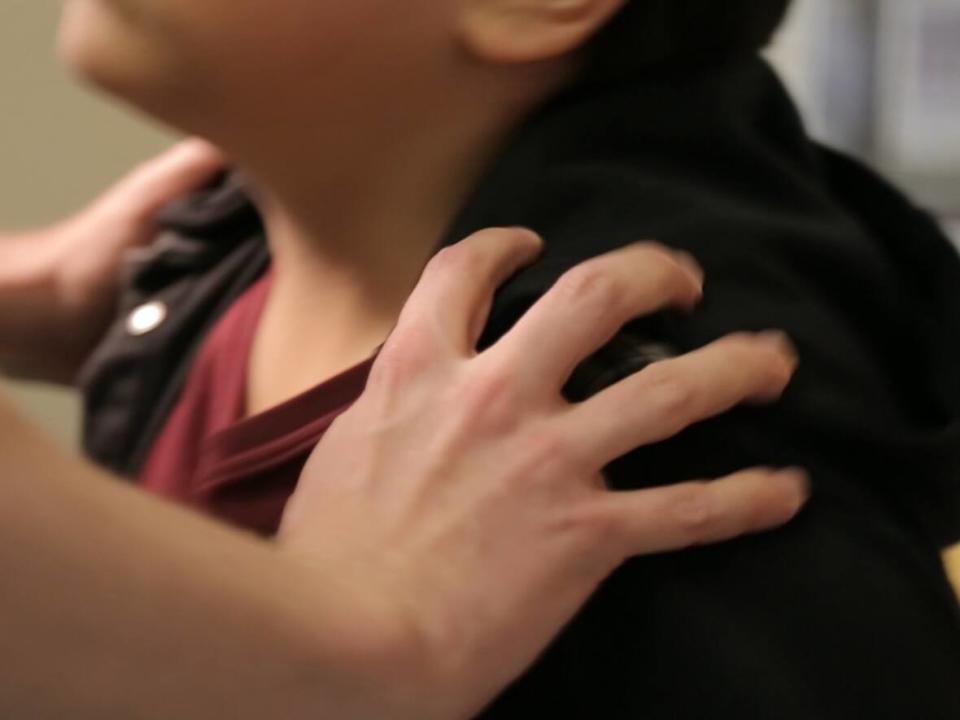Teachers behaving badly? There's a fix for that, child advocate says

Newfoundland and Labrador's child advocate is pushing for better management of misbehaving teachers, saying there's little parents can do when confronted with inappropriate conduct that doesn't meet the bar for criminal charges.
Jackie Lake Kavanagh's comments come as two Newfoundland and Labrador teachers wind their way through the province's court system for alleged sexual offences against their students.
That outcome, she says, is rare — but milder forms of teacher misconduct aren't.
"It's also really important to look at what happens when the allegations of teacher misconduct don't reach the criminal threshold, because it's really quite significant to reach a criminal threshold," Lake Kavanagh said.
Misconduct can take subtler forms than sexual exploitation or assault, she added — damaging remarks, inappropriate touching and blurred boundaries may all pose a threat to students.
The child and youth advocate found that in those less flagrant instances, a complaint about a teacher's behaviour is usually dealt with by a school administrator or human resources employee and kept from the public eye. Instead, Lake Kavanagh is recommending Newfoundland and Labrador adopt a transparent system to deal with complaints, much like other professions, such as dentistry, psychology and law.
Some other provinces, including British Columbia and Ontario, have that mechanism in place, she said.

"Those jurisdictions have public complaints processes, and they report on the outcome of their disciplinary hearings and any sanctions and what the findings are. But none of that exists in this province," she said.
Teachers in Newfoundland and Labrador also aren't guided by a specific code of conduct, she says, and she proposes the provincial government devise those guidelines — and then hire trained professionals to investigate any breaches, rather than leaving it to principals and human resources personnel.
"People don't have faith in that process," she said.
Impact of misconduct 'enormous'
A snide comment or vulgar remark, made here and there over time, could adversely affect a child for years, says child psychologist Janine Hubbard, with consequences ranging from decreased socialization to anxiety and trauma responses.
The impact "can be enormous," she said.
Any trusted adult — a coach, clergy member or otherwise — are generally held by the child in high esteem.
"For the most part, we have kids wanting to please … these individuals because they're often very respected," Hubbard said.
"And then to have that violated in any kind of way, whether it's negative comments from them or whether it's any kind of additional breaches of trust — it has far more implications than almost any other relationship, other than the parent-child one."

Blurry boundaries, such as a close relationship between a student and teacher who engage in extracurricular activities together, can also isolate children from their peers and sometimes cause confusion if the relationship isn't handled appropriately. "And that then can have an impact on all the other relationships in their life at that time, and again in the future," she said.
While the vast majority of teachers are "dedicated, compassionate, caring and behave appropriately," Hubbard said, a power imbalance is inherently built into any student-teacher relationship, making disciplinary processes key to protecting a child's wellbeing.
Education Minister Tom Osborne indicated in a phone interview Monday that the department would be looking at both the disciplinary process for teacher misconduct and behavioural guidelines.
He said a code of conduct is built into the Safe and Caring Schools policy in a general way that encompasses the entire school community.
But as the department absorbs the Newfoundland and Labrador English School District over the next year, he expects to look for improvements like the ones Lake Kavanagh has suggested.
"The short answer is absolutely, we will take the advice of the child and youth advocate under advisement and look at any potential areas that we may be able to improve," he said.

 Yahoo Finance
Yahoo Finance 